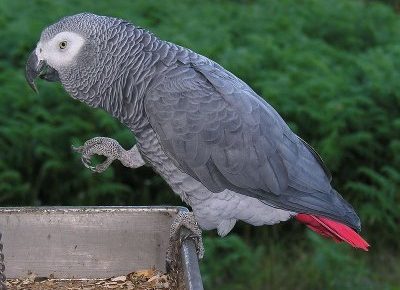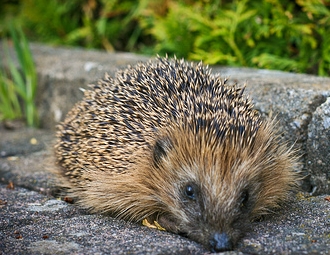
Ferrets are members of the weasel family (mustelids), a family of mammals that also includes badgers, martens, otters, polecats, minks and wolverines. Ferrets are extremely sensitive to the heat of summer. In the wild they are nocturnal animals and are adapted to cooler climates with temperatures not getting above 60-70 degrees. When temperatures are over 80 degrees or less if it’s humid, heatstroke is possible. Outdoors they burrow in areas that are cool in summer and hunt for food in the evening or at night.
As pets ferrets have adapted to our way of life and will be active during the day. Thanks to air-conditioning, temperatures at home can be controlled to make sure a ferret is comfortable. But if electrical power goes off, it’s up to us to find ways to keep our ferrets cool.
It’s a good idea to keep some bottles of water in the freezer so there is always ice available, even if power goes down. Place your ferret’s crate in the coolest room of the house. Make sure the sun never touches it at any time of day. Place some waterproof material in an area where you can lay bricks or stones over it. Bricks and stones are absorbent and cool water poured over them will provide a cool place for your ferret. Or you can wet some towels and place them over the bricks or stones. Check them every so often to make sure they haven’t dried out. Provide a cool pan of water for your ferret to dip in and of course, fresh drinking water.
You can create a cool place with a box or two. Place the smaller box inside the larger way with newspaper in-between to act as insulation. Turn boxes open side down, cutting an entrance hole and air holes on either end of the boxes. Put an ice water bottle inside and you’ve constructed a cool area for your ferret.
If you really feel it’s necessary and your ferret appears that uncomfortable, you can clip some of his/her coat. No air-conditioning? Wet your ferret down every so often using lukewarm water. Cold water can cause a shock to the system.
When traveling with your ferret in the car, place the cage on the floor, first covering the area with an insulation material. Secure the cage so that it won’t move if you stop suddenly or hit some bumps. Try to direct the air-conditioner towards the ferret, but not directly blowing on him/her. Place some ice water bottles around the cage, securing them. Provide fresh drinking water in the cage. If you’re going on a long trip, make sure your ferret has enough food and toys to amuse him/her.
During the “dog days” of summer, keep a close watch on your ferret. If you see any signs of illness, take your ferret immediately to the veterinarian.



